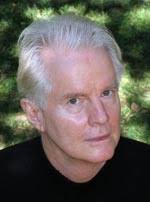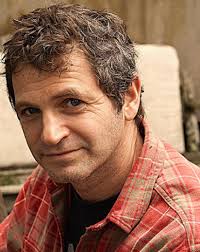
In the Fall 2019 Rattle, in one sense, the shortest poem has the biggest echo. It crosses the divide. Or maybe it joins what was once a divide and is no more.
For me, it’s personal, but the divide thingy works for any reader, I’m sure.
You see, I am part technology wizard, part Luddite. The Luddite half is chiefly comprised of a small pocket of emptiness. I do not own a cellphone. I do not want to own a cellphone. I cherish my un-cellphoned life known as the emptiness in my pocket.
As might be expected, sans the constant rings and texts, I have more time for the natural world. There is no interruption when I see a flight of American Painted Ladies (a type of butterfly that prefers flowers to circuses, thus avoiding Washington D.C.). There is no interruption when I walk the dog under a full moon on a black river of road passing the house. There is no interruption when I walk down to the pond and smell the damp earth and decay of leaves lining the shore.
No. None of that.
So, mistakenly, I divided poetry topics into natural and artificial (read: human-made). Foolish, really, as any dichotomy of black and white ignoring gray is bound to be. I mean, really. Nature poems vs. Human-centric (and often eccentric) poems, and never the twain shall meet?
Enter the shortest poem in the Fall 2019 Rattle. It was written by someone named Rolli, a sobriquet previously unknown to the likes of me. Monomynous people are either famous or ambitious for fame. Madonna. Cher. Sting. Prince. Beyoncé. Drake.
That’s a lot of singers, but there are writers with mononyms, too: Voltaire, Colette. Moliere. Rumi. Bashō.
But back to Rolli and twains meeting. Nature. Man. Natural. Unnatural. You be the judge:
Let Us Not Even Dream
of speaking
no
for the stars are
luminous
phones
in the palms of night
See what I mean? The cellphone gets equal billing with the stars (unnaturally enough). Unless, of course, you read it as a criticism of cellphones, in which case the twains are not only meeting but high-fiving each other.
I leave it to you, reader, as Rolli left it to me, the Last of the Mohicans (read: cellphone-less sorts with empty pockets and yes, that includes money).






